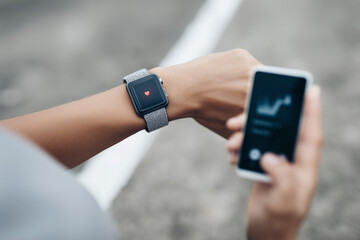Wearable technology is transforming how we track and manage our health. Devices like smartwatches and fitness trackers allow individuals to monitor vital signs such as heart rate, steps, calories burned, and sleep patterns. These devices offer real-time data that helps users make informed decisions about their health and well-being. In the long run, wearable technology aids in detecting potential health issues before they escalate, thus improving overall quality of life. The convenience of having health information at your fingertips has made wearables an indispensable part of modern life.
Wearable Technology for Fitness and Performance Enhancement
Fitness enthusiasts are embracing wearable technology for its ability to track workouts and improve performance. From heart rate variability during exercise to detailed metrics on running, cycling, and swimming, these devices provide users with precise data to optimize their routines. Wearables can even recommend personalized workout plans based on performance trends. With GPS tracking and real-time feedback, athletes can achieve their peak performance levels while reducing the risk of injury. Additionally, wearables foster a sense of accountability, as users can easily track their progress over time and set new fitness goals.
Seamless Integration with Daily Life Through Wearables
Wearable technology extends beyond fitness tracking and health monitoring. Smartwatches and augmented reality glasses are becoming integral to our daily routines. Notifications, calls, and even payment options are conveniently accessible through these devices, making them essential for multitaskers. Wearable devices have evolved into essential lifestyle tools, allowing users to stay connected, organized, and efficient throughout their day. As technology continues to advance, future wearables may integrate even more features, making it easier for individuals to manage both work and leisure activities seamlessly.
The Rise of Smart Wearables in the Workplace
The workplace has also seen the adoption of wearable technology to boost productivity. Smart glasses and wearable devices can help professionals with tasks such as augmented reality training, remote communication, and hands-free operation of devices. Wearables can also monitor stress levels and encourage breaks, ensuring that workers maintain a healthy balance between work and relaxation. The rise of wearable technology in the workplace reflects how businesses are embracing innovative solutions to enhance performance, employee well-being, and overall efficiency.
Wearable Technology and the Future of Personalization
One of the most promising aspects of wearable technology is its ability to provide personalized experiences. With the help of data analytics and machine learning, wearables can tailor recommendations based on an individual’s health data and preferences. For instance, a wearable can suggest workouts, meal plans, or even lifestyle changes based on a user’s specific needs. As wearable technology continues to evolve, it will become increasingly adept at offering highly personalized solutions that empower users to take control of their health and well-being.
The Ethical Considerations of Wearable Technology
As wearable technology becomes more ingrained in our daily lives, it’s important to address the ethical considerations surrounding data privacy and security. With wearables collecting sensitive health information, it’s crucial for manufacturers to ensure that user data is protected. Additionally, the constant monitoring of an individual’s physical activity and health can raise concerns about data misuse or surveillance. Striking a balance between convenience and privacy will be essential in ensuring the future success of wearable technology.
Wearable Tech and the Future of Mental Health
The role of wearable technology in mental health management is gaining attention. Devices are now capable of tracking mood fluctuations, stress levels, and emotional triggers. Wearables equipped with sensors can measure heart rate variability, which is often linked to stress and anxiety. This data can then be used to suggest relaxation techniques or recommend changes to one’s lifestyle. As wearable tech evolves, we may see further advancements in mental health monitoring, empowering individuals to better understand and manage their emotional well-being.
Expanding Wearable Technology Beyond Consumer Use
While wearable technology has been primarily designed for personal use, its applications are extending into various industries, such as healthcare, sports, and education. Medical professionals can now use wearables to monitor patients remotely, offering better care without the need for frequent hospital visits. In sports, coaches are utilizing wearable devices to track players’ performance and prevent injuries. Furthermore, educational institutions are exploring wearables to aid in learning through augmented reality experiences. The growing versatility of wearable technology promises to revolutionize many sectors beyond just consumer gadgets.
Conclusion
Wearable technology has come a long way in recent years, and its impact on our health, fitness, and overall lifestyle is undeniable. By offering real-time data and personalized insights, these devices help individuals optimize their daily routines and achieve their goals more efficiently. As technology continues to advance, we can expect even more innovative wearables that further integrate into our lives, improving convenience, health, and productivity. However, it’s important to ensure that ethical considerations are addressed, allowing us to enjoy the benefits of wearable tech while maintaining privacy and security.

